November 22
Sunday, November 21, 2021
58. Fifty-eight years ago, it was the first time I saw my teacher cry in front of her students on this date. It was the first time she showed emotion besides hatred or approval of her classroom students. They announced the news over the school PA system, and I could see it startled her, and then the tears flooded her face. I don’t know if it was the shock of hearing the news over the PA system or the effect it had on my teacher's behavior that early morning on November 22. Up to that date, and just nine years old, I never experienced death, either by a human or animal such as a pet. Nothing died in my life at that time. Even cowboys didn’t die on TV. The worst that can happen is someone would knock the hero’s back of his head with a gun butt, or the hero may shoot the gun out of the criminal's hand, but that was the worst that could happen. After getting knocked on the head and gaining consciousness, the cowboy hero would rub his aching head up and down and get back to business to fight crime.
As I got older, I did experience death. But what is strange is the news of hearing a famous person dying compared to someone you know who died. The end of a friend or an acquaintance is much more abstract than a famous person’s death. I don’t think I have ever been shocked by someone’s passing, except my dad, but it seemed not natural to everyone else. Yet, when it happens to the famous, death is more prominent for some reason. When someone dies that is close to you, one can’t share that feeling. Yet, a renowned end is often shared in great detail. If they are even really famous, one can buy a magazine or book devoted to that person’s life and, more likely, death. The key thing in these publications is the last photograph of the deceased. There is a compulsive need to know that there is such a document in place. As he waves to an audience in the back seat of the car, the last living presence of that being is shocking enough. Many years later, I saw a photograph of him in the morgue, and even then, I couldn't believe I was seeing what I was seeing. To see a body when there is no life in it is genuinely shocking to me. As for a musicians’ death, one hears music being played on the radio, and there may be various tributes being played out on multiple media mediums. Still, there is never a PA system announcing the death of someone in the family or friend.
To this day, when I hear “Walking On Thin Ice, ” I think of it as the last recording by this famous musician. Of course, his passing brings a certain intensity to work. One can even feel that the artist intended to have this song as the final message. The truth is, the artist didn’t know what would happen that night. It is not always fate; sometimes, shit happens for no reason. And like the other individual who was shot, he looked shocking in the morgue photograph as well. I looked at it like the others, but I wished I didn't see that image. I instead think of him as being alive, not dead in the morgue.
On November 22, and over time, it looks like a complex series of incidents happened. There are many theories, and all of them sound possible. But then again, it sometimes just takes one individual to aim and shoot; that changes everything. How big can that change be due to one man shooting another dead? The narration needs to be more significant. At the time of the shooting, it was bigger than life. The violence of it was the star attraction that day. I knew the victim, but only on black and white images printed in the daily newspaper. I don’t even remember seeing him on television, and I know he is one of the first figures to use that medium for political purposes.
When he was killed 58 years ago, they played out all the angles. They talked about what direction the bullets came from and even hinted that they came from more than one location. It didn’t seem real. There were so many narratives running through the act of assassination. A family member or friend dies, and that is the end of the story. But a star or a public figure, the death process and the action is always complicated for some reason. It is almost like death is too personal, so we need a famous person to die to examine the why, what, where, and how it was done. It’s not polite to do that when a person we know dies. We quietly accept it.
The second time I experienced death personally was when the accused assassin himself was assassinated in front of live TV. Now that was an actual death, and as they re-played the moment he was shot over and over again, one thought, “oh wow, he was alive at this point, and then when he’s down, he’s dead.” I felt I was watching a bridge between life and death, but I couldn’t make out the architecture of that bridge or walkway. Concerning the first assassination, I wanted to see it repeatedly, in the hopes I get a glance of that string, road, or whatever it is from life to the other side. When he was in his car waving at the crowd, he was so alive, and then a few seconds later, he wasn’t. That shocked me. It disturbed me.
When my dad told me that a family friend had died, I didn’t know how to react to his death even though I liked this person. I felt like it didn’t happen because I didn’t see it on TV. My father’s words were not enough evidence to me that he died. Especially since we didn’t go to a memorial or funeral for this person. The shocking thing is that he was perfectly fine the last time I saw him. He didn’t give out any death vibes at all. It was really confusing.
As one gets older, more famous people die. The weirdest aspect of age is that you note that all the TV, movie, or music stars are dying regularly. Each death of a TV series actor from the 1960s or 1970s immediately takes you back to when you were in front of the TV set. Because their character, which I didn’t know was any different from their actual lives, was projected on your consciousness due to being in front of the set, it seems to have more meaning for some reason. Often on Facebook, someone posts a notice a specific actor or singer has passed. I automatically put a “like” to that post, not because I like that they died or they’re dead, but to acknowledge that person’s observation on that star, as well as a tribute on my part by ‘liking’ that post. It’s a strange thing to acknowledge one’s death by just liking a post. But there you go; the passing of time is often shocking in itself.

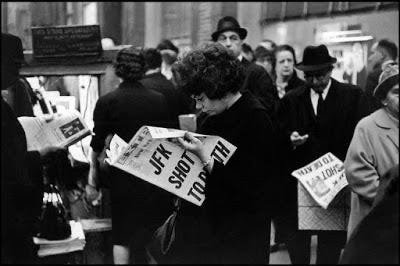
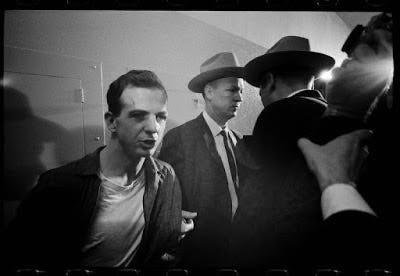
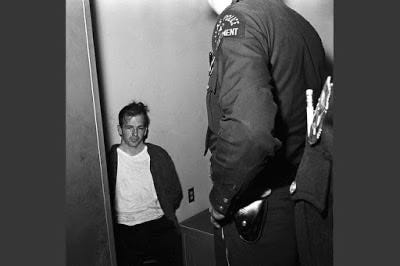
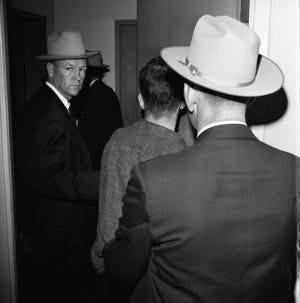
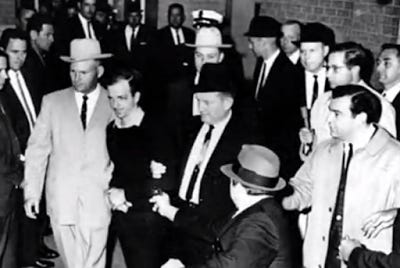
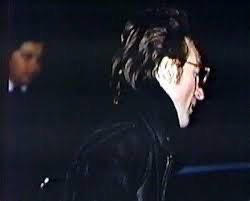
Tying into your IG post, agree, this turning point in our history today seems as relevant to most as the day of the Lincoln assassination. Writer Richard Rodriguez wrote once that Texans, and America , do not focus on death and grief. Noted by psychologists that after the assassination people consciously or unconsciously watched endless hours of television.
But as someone born and raised in that city that was a hotbed of radical JFK sentiment , this day is a significant marker, maybe because of the frustration that we are still fighting an inexhaustible indefinite fight against this conservative nihilism. Remember the most dominant topic at the Kennedy / Nixon debate was the defense of Matsu and Quemoy, not the idealoque issues boiling in 1960 America. We repeatedly side step it all. Incremental progress as both Kennedy’s once noted, is what we fight for.
As an off topic side note my Hispanic mother was appointed by local police who were family friends ( seen in the photos posted of Oswald being escorted out to his assassination) was the interpreter for the International Spanish Press and other local American news sources for the Oswald family. Nothing that Marina or his mother told my mother ever made it into any news source.
I was a young teacher, when I got the news. I left the classroom, collapsed in the hallway, crying uncontrollably. It was the end of my innocence.